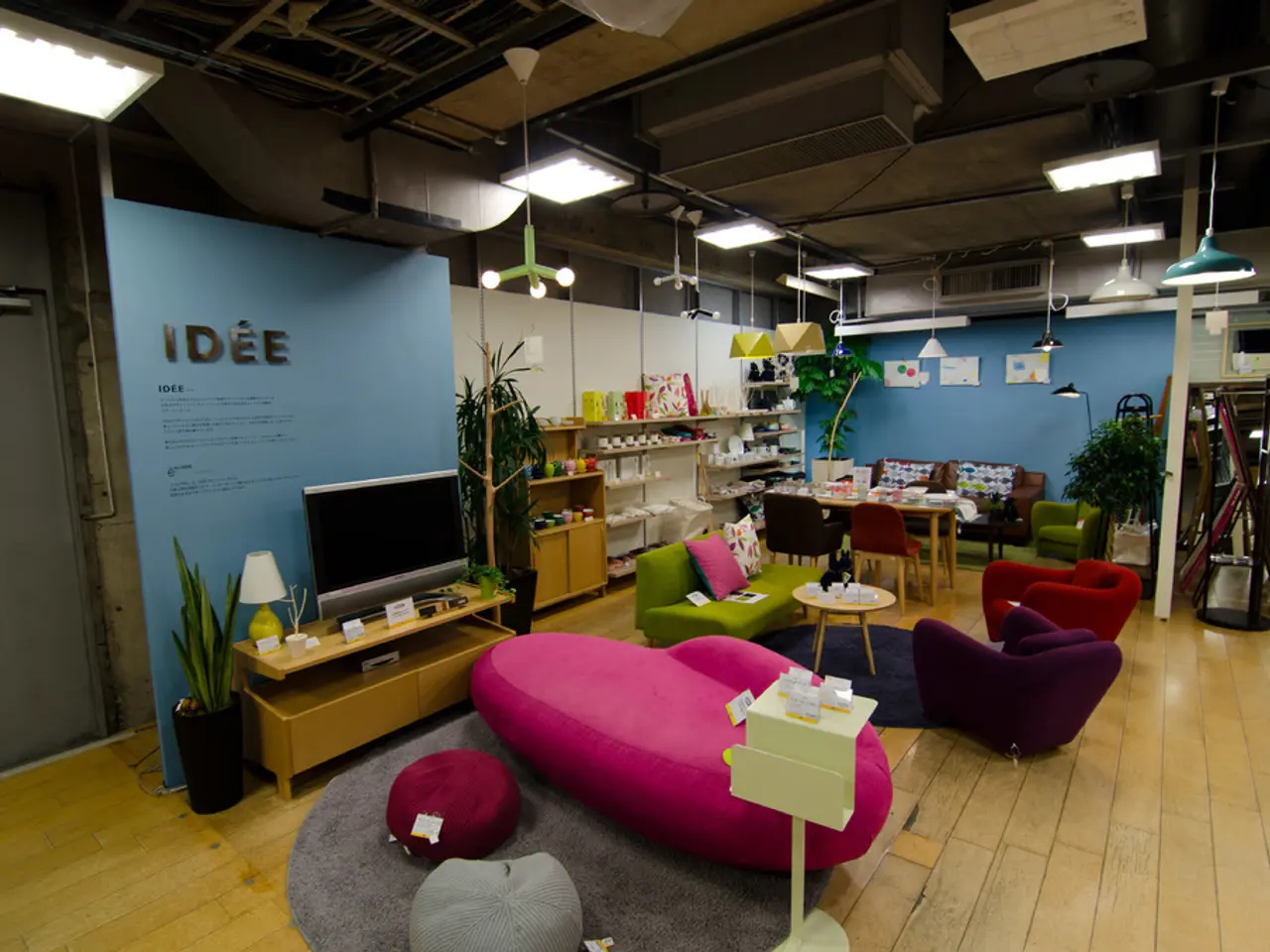Homeless Individuals in Dusseldorf Receive Eco-Friendly Furniture Created by Local Students
=========================================================================================
The Düsseldorf University of Applied Sciences (Hochschule Düsseldorf) has embarked on an interdisciplinary furniture design project that aims to improve living conditions for people experiencing homelessness. This project brings together students and faculty from various departments, including furniture design, architecture, and social sciences.
The collaborative effort focuses on creating innovative, functional, and adaptable furniture solutions tailored to the needs of homeless individuals. Design thinking and social impact concerns are integrated, with the goal of making a positive difference in the lives of vulnerable populations.
One design option that has emerged involves a folding bed with storage compartments, providing a space-saving and practical solution for small living spaces often encountered by homeless individuals. The designs are also prioritising privacy, even in limited spaces.
The project's origins can be traced back to a seminar titled "Housing and Homelessness in an Interdisciplinary Context," held last year. The seminar brought together students from the faculties of Architecture, Design, and Social and Cultural Sciences. The follow-up seminar delved deeper into the topic, led by Philip Behrend (Architecture department), Nadine Nebel (Design department), and Prof. Dr. Anne van Rießen (Social and Cultural Sciences department).
The students have gained valuable insights by visiting an emergency shelter and speaking with street workers and homeless people to better understand their needs and preferences. This firsthand experience has helped clarify the project's goals and refine the designs.
Individual furniture pieces for versatile use are among the designs on display. The prototype of a city living room, designed under the title "Urbane Intervention! Urban Development and Design," is now in use at the Eller advertising association.
The designs are currently on exhibit at the Office for Migration and Integration, located at Vogelsanger Weg 49, State Capital Düsseldorf. No prior registration is required to visit the exhibition, which is open to visitors until June 10th, with viewing hours of 9 am to 3 pm on weekdays and 9 am to 12 pm on Fridays.
While specific exhibition dates or venues related directly to Düsseldorf University of Applied Sciences' furniture design for homelessness were not found in the current search results, the university’s interdisciplinary programs and similar initiatives often connect with broader thematic exhibitions in Germany, particularly those integrating art, architecture, and social issues.
For those interested in the project, contacting the Hochschule Düsseldorf's design faculty or checking their official website and related cultural institutions in Düsseldorf might provide the latest updates on current exhibitions or opportunities to engage with the project.
In summary, Düsseldorf University of Applied Sciences’ interdisciplinary project on furniture design for homelessness merges design innovation with social responsibility, featuring exhibitions that underline the social dimension of design practice.
- The interdisciplinary furniture design project undertaken by Düsseldorf University of Applied Sciences, delving into home-and-garden concepts, also extends its focus to education-and-self-development, as students engage in seminars and firsthand experiences to better understand the needs of vulnerable populations.
- The furnishings created through this project, aiming to enhance lifestyle for homeless individuals, are not only showcased at the Office for Migration and Integration, but might also be featured in broader thematic exhibitions in Germany, highlighting the university's commitment to fusing art, architecture, and social concerns.





